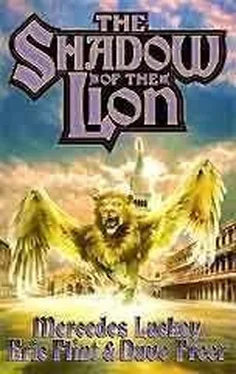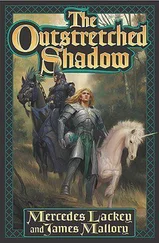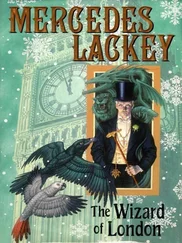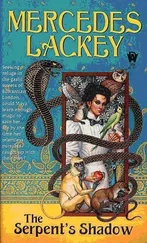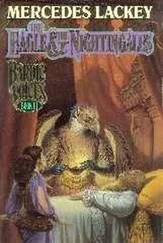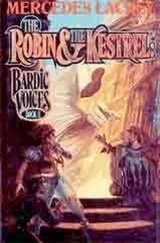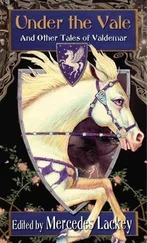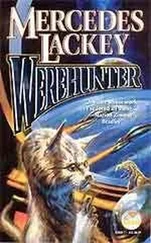In a procession around the walls were the important events of Hypatia's life. Nearest the door at the back of the church, in the first panel, she lectured on Neoplatonic philosophy to her pupils. Not yet a Christian, Hypatia was shown garbed in Grecian robes with a laurel wreath crowning her close-braided hair to represent her great learning. Her pupils at her feet. Unlike many painters, Lucia had given this part of Hypatia's life as much importance as the incidents after her conversion.
Next, of course, the Unknown Shepherd Boy appeared for one of her lectures, debating her in front of her amazed pupils, and ultimately convincing her and all of her pupils as well that Christianity was a logical extension of her own beliefs. Lucia had, interestingly enough, portrayed the Unknown Shepherd with a faint beard, the halo of Sanctity, and the Dove of the Holy Spirit above his head, hinting that the Shepherd was actually a visitation of Christ. Very daring; rather an interpretation that Kat herself favored.
The next panel was more complicated, showing, on the right side, Hypatia lecturing to her pupils on the melding of Christianity with Neoplatonism into a new and inspiring philosophy. On the left, their faces scowling, were the Archbishop of Alexandria and his followers. Lucia had painted them in colors and shadows that suggested prejudice, close-mindedness, and treachery as they plotted Hypatia's murder. Their bitterness at her pulling more and more of their own congregation into her new flock and undermining their views was masterfully portrayed.
The next panel, the last on that wall, showed the Miracle. Hypatia being surrounded on the steps of the Great Library of which she was the Librarian by the followers of the Archbishop. They carried razor-sharp shards of clam and oyster shells in their hands, which they intended to use to slice her to ribbons. Hypatia stood facing them calmly, lips parted, presumably in prayer. She was not praying for herself; she prayed for them. She prayed that they should receive Hagia Sophia, Holy Wisdom--the Truth, as only a Neoplatonist would mean it.
The first panel on the altar wall showed the moment of the Miracle itself, the moment when Hypatia's prayer was answered, and God (shown in the form of hundreds of rays of painstakingly applied gold leaf emanating from a cloud above Hypatia's head) touched the minds of the would-be murderers. They saw the Truth, only too surely; all the Truth, about everything in the world, all at once, shoved into their narrow little minds until their skulls practically cracked with it. Lucia showed this with the shards of shell falling from their hands, the bulging eyes, the slackened mouths, the knees bent in a way that suggested they were losing physical as well as mental balance. Hypatia was in the same pose still as in the panel before, but the Dove of the Holy Spirit hovered over her, now. Kat had more than once thought that Lucia had painted just the faintest of smiles on her lips, and a knowing glint in her eyes.
Kat wondered, as she had before, how much of the scene depicted was truly accurate. From things which she remembered Dottore Marina telling her, she suspected that the defeat of Hypatia's enemies had probably been a lot messier and more complicated than the artist's portrayal of it. And involved more in the way of intrigue and maneuver--perhaps even violence--than the purely spiritual portrayal of the victory which was depicted on the wall of the church.
Farther down the wall, behind Kat, were the John Chrysostom panels. The first showed Hypatia in her study, writing to her fellow Christian philosopher. The two had formed an alliance, a meeting of minds that would steer the course of the Christian Church from that moment.
Again, Kat suspected that the portrayals were . . . sanctified quite a bit, with all the rough edges smoothed away. She knew, for one thing--her former teacher had told her once--that Chrysostom's bigotry against Jews had been the cause of frequent clashes between him and Hypatia. The famous alliance between the two theologians had not been as harmonious and trouble-free as the frescoes made it seem. The fact that the figure of the prophet Muhammad was included in the panel alongside the Jews and pagans made it obvious to Kat that the artist had given scant heed to picayune historical accuracy. Muhammad had not even been born until a century after Hypatia's death.
She smiled, for a moment. She thought that most historical accounts were probably like that: "cleaned up," as it were.
She leaned back and studied the ceiling. In the fresco above, Lucia showed Hypatia, silver-haired but still beautiful, being welcomed into Heaven by the Dove, surrounded by the ancient Prophets, Christ and the Madonna--and Muhammad, again!--along with a host of angels, peris, and figures that bore more than a passing resemblance to Plato, Socrates, and other pagan philosophers. She held in her hands the Library that she had guarded all her life, the Library that would have been burned to the ground if not for the Miracle, presenting it to God as representative of her life's work. If the Library had burned, all of the knowledge of the workings of magic that brought people from all over the world to study in Alexandria would have been lost forever. There would be no shining Order of Hypatia and the Siblings who studied magic and used it to defeat the powers of darkness.
Given the current situation, Kat found herself wondering if that would have been so bad, after all . . . for if there was no Order of Hypatia, there would also be no Servants of the Holy Trinity.
Don't be an idiot. If that knowledge had been lost, we'd all be worshipping Chernobog right this very minute.
Without the knowledge of the Library, the evil magicians of the barbaric North and East would have had it all their own way, and their warriors, disorganized as they were, would still have conquered everything now ruled by Emperor Charles Fredrik. They'd probably be storming the gates of Venice at this moment.
Still, Hypatia and Chrysostom hadn't prevailed, not completely. They weren't as ruthless as their foes within the Church, the followers of Saint Paul. If they had been, there wouldn't be the fanatical Order of Saint Paul, nor its offshoots, the Servants of the Holy Trinity and the Knights of the Holy Trinity, with their Inquisitions and their purgings.
What were you thinking? Kat asked the image of Hypatia silently. Why did you have to be so--so diplomatic and conciliatory? They wouldn't have been if they'd gotten the upper hand! You and Chrysostom would have been walled up in hermit's cells in the desert "for the good of your souls"! And why were you so compromising with Augustine? Without him, there never would have been a Pauline creed at all.
Hypatia's painted image didn't answer, and Kat sighed. She was no theologian, and this was getting her nowhere. She needed to talk to someone older and wiser. If she could have turned the clock back, her first choice would have been Dottore Marina. For all that he'd only come twice a week, in the evenings, Dottore Marina had been the one among her her tutors who had always seemed to understand. She still remembered the fight between her mother and her grandfather about his teaching her at all.
Her grandfather had insisted. For all that it was many years ago, she could still remember what he'd bellowed. "He is one of the Doge's own librarians! Yes, he is Magister Magi, and a Strega to boot. Saint Hypatia, woman! The child needs a bit of broadness in her education. And no one in all Venice has more broadness than Dottore Marina! Even Metropolitan Michael says he is a great scholar of Christian philosophy."
At first she'd been a little afraid of this "pagan" her mother had muttered about. But he'd been a good tutor, kindly and patient. He stuck out from all the rest like a beacon. He listened, for one thing. And, for another, she could use--today, in a way she hadn't needed then--the dottore's understanding of the dangerous complexities of Venetian politics.
Читать дальше
